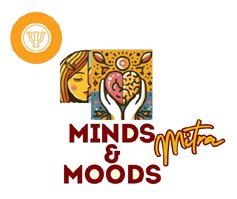Your Compass to Professional Fulfilment: Understanding Career Counselling 🧭
Career counselling is a collaborative and professional process that helps individuals navigate their professional journey, from choosing an academic path to making a mid-career change. A career counselling psychologist uses a variety of tools and methods to help clients gain clarity on their strengths, interests, values, and skills, and then align these with suitable career opportunities. It’s a proactive step toward a more fulfilling and purpose-driven life, helping to alleviate the workplace stress and burnout that come from being in a job that doesn’t fit.
Why is Career Counselling Essential? Symptoms & Causes
The need for career counselling can arise at any stage of life, from a student feeling overwhelmed by choices to a seasoned professional seeking a change. The symptoms that often signal a need for professional guidance include:
- Indecision and Confusion: Feeling lost or overwhelmed by the vast number of career options.
- Job Dissatisfaction: Experiencing a lack of motivation, burnout, or feeling unfulfilled in a current role.
- Lack of Direction: A sense of stagnation or not knowing what the next professional step should be. This can be a sign of a need for broader life transition counselling.
- Misalignment: A feeling that one’s current work doesn’t align with their true interests or values.
- External Pressure: Making career choices based on family expectations or societal trends, which can lead to academic stress or school stress.
The causes for these issues are often a lack of self-awareness, insufficient information about the job market, and a mismatch between a person’s personality and their professional environment. Without guidance, this can lead to serious psychological issues, including depression or a feeling of hopelessness.
The Procedure of Career Counselling: A Structured Journey
The procedure of treatment for career counselling is a systematic process that moves from self-discovery to a strategic action plan.
- Self-Assessment: The journey begins with a deep dive into self-awareness. A psychologist may use various psychometric analysis tools, including IQ testing, personality assessment, and learning style assessment to evaluate the client’s aptitudes, interests, values, and personality traits. This step is crucial for identifying an individual’s unique strengths and passions.
- Exploration of Options: Based on the assessment results, the counsellor helps the client explore a range of career paths and industries that align with their profile. This involves providing detailed information on job roles, required qualifications, and market trends.
- Action Planning: Once a clear direction is chosen, the counsellor and client develop a concrete action plan. This roadmap may include strategies for gaining new skills, building a professional network, or preparing for interviews. It may also involve other therapeutic interventions like confidence building counselling to address self-doubt or negative thinking.
- Implementation and Support: The counsellor provides ongoing support as the client executes the plan. This can include preparing for a new job, navigating a career change, or even addressing public speaking anxiety treatment. The counsellor acts as a mentor, providing guidance and accountability throughout the journey.
A Trusted Professional in Nagpur: Rrimi Bodalkar
For those seeking expert guidance in Nagpur, Rrimi Bodalkar, a Sr. Psychotherapist / Mental Health Counsellor, is a highly respected professional in the field of career counselling. With her M.A. in Psychology (Counselling) and PGDMH (Clinical), she offers a comprehensive and scientifically-backed approach. Her NSDC certification in Psychometric Analysis & Learning Style Assessment makes her particularly skilled at using data-driven insights to help clients make informed career decisions. Specializing in CBT, REBT & DBT, Rrimi Bodalkar is uniquely qualified to not only provide professional guidance but also to address underlying psychological barriers, such as negative thinking and low self-confidence, ensuring a holistic path to professional and personal fulfillment.
Frequently Asked Questions (FAQ’s)
Q1: How is a career counselling psychologist different from a general mental health counsellor?
A: A career counselling psychologist specializes in the intersection of psychology and professional development. While both can help with personal counselling, the former has specific training in using assessments and models to guide career decisions, whereas the latter may focus on a wider range of issues such as grief and loss counselling or PTSD counselling.
Q2: Is career counselling only for students?
A: No. While it’s common for students, it’s also highly valuable for adults considering a life transition, re-entering the workforce, or addressing burnout. It’s a tool for anyone who wants to ensure their professional life is a good fit.
Q3: Can career counselling help with workplace stress?
A: Absolutely. By helping you find a career that aligns with your personality and values, career counselling can be a preventative measure against future workplace stress and burnout. It helps you find a role where you can thrive, not just survive.
Q4: Will the counsellor tell me what career to choose?
A: No. A professional counsellor will not tell you what to do. Their role is to provide you with the tools, insights, and information you need to make the best decision for yourself.
Q5: What’s the link between a personality assessment and career counselling?
A: A personality assessment is a core component of effective career counselling. It helps to identify your natural inclinations, work style, and what motivates you, which are all critical factors in finding a fulfilling career.

